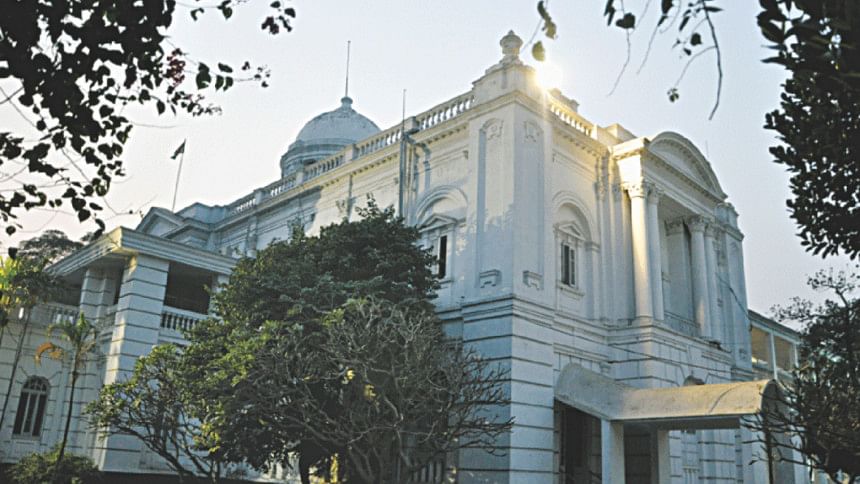Trial of international crimes: Strategic change is due

The International Crimes (Tribunals) Act, 1973 was enacted to provide for the detention, prosecution and punishment of persons responsible for committing genocide, crimes against humanity, war crimes and other crimes recognised under international law. After a long hibernation of successive governments, in pursuance of this Act, two Tribunals were established: Tribunal-1, on 25 March 2010 and Tribunal-2, on 22 March 2012. The Tribunals so constituted tried and convicted few perpetrators who committed atrocities in Bangladesh in 1971. Since 15 September 2015 only Tribunal-l has been functioning and on the contrary, Tribunal-2 remains non-functioning.
During 42 months operation time, Tribunal-2 had decided 11 cases. And till 5 December 2016, in 69 months, Tribunal-1 had decided 16 cases. So, in 111 (69+42) months operation time, two Tribunals altogether decided 27 cases (16+11). On an average, per case disposal time is around 4.11 months. Presently, 22 cases await disposal in Tribunal-1 and 675 cases are pending for investigation in Prosecution. If things remain in this pace, with present strength, arithmetically, Tribunal-1 and Prosecution may require more than 200 years in disposing all issues in hand.
After 46 years of the atrocities, there are few accused alive to be prosecuted. The accused so charged and tried already were so aged that four of them died during trial. In reality, if the present trial process is not excelled in manifold, it is assumed that the age-old accused persons might remain unprosecuted. In course of time, memories are fading, witnesses are dying or becoming uninterested for many compelling reasons. Records and documents which could have been used as corroborative evidence are being destroyed systematically. Any further delay shall effectively frustrate the trial process only.
Seemingly, with the conviction of leading perpetrators, trial of international crimes has lost its momentum. More shockingly, closing of Tribunal-2 manifestly demonstrates withdrawal of political commitment in this cause. In one hand, the Tribunal so appointed and resources so allocated for the Prosecution are disproportionate to address the bulk of offences. On the contrary, atrocities of 1971 are so outrageous that no other response can ever be adequate. In this standing, we can neither forgive nor prosecute such atrocities.
Professor Frank Haldemann considers that, 'crime is not only an offense against some abstract notion of the State, or against some impersonal set of rules, it is the wrongful violation of a person by another person'. So, he proposes that primary concern should not be making the offenders suffer, but to restoring human relations and victims' interest.
Justice administered by the Tribunals is retributive in nature. Justice is done in the name of abstract notion of 'humanity' but not necessarily for 'human victims'. After half a decade of commencement, time has come to revisit 'who' actually has gained -'what'- from the trial of the international crimes. No doubt, the State succeeded in ending the sense of impunity, but for the victims and their family, there is little achievement other than the mental contentment. On this understanding, it is time to look for an alternative justice which is less vindictive and state-centered and is more compassionate and responsive to victim's suffering.
In this connection, Professor Frank Haldemann campaigns for the concept of justice as 'recognition' - a form of justice which is involved in giving due 'recognition' to the sufferings endured by victims. Recognition focuses on individual or collective victims. Unlike restorative justice, which emphasises on the restoration of broken societal relations, recognition focuses primarily on the victim's sense of injustice and diminished self-respect. This different kind of justice, distinct from retribution requires a determination to compensate the victims' loss justly.
So, for the Prosecution and Tribunal, there are two strategic challenges: firstly, timely justice with limited resources; secondly, justice from the perspective of the victims' needs.
To expedite the trial process 'admission of guilt' coupled with 'apologies' could be encouraged by offering 'minimal conviction' to offenders. Sociologist Nicholas Tavuchis observes that a proper and successful 'apology' for wrongdoing requires 'acknowledgement' and 'full acceptance of responsibility' by the wrongdoer. On recognition of responsibilities, the offender must be required to adequately compensate the victims or their successors to restore the original condition prior to the wrongdoing, as if no loss had ever occurred. Even though non-pecuniary losses like human life, physical integrity, dignity or community cannot be restored, recompense might work as 'positive make up' for such losses.
Law says, 'where there is a right there is a remedy'. In the face of infringement of rights, if the remedy offers nothing compensatory to the victims, what is the good of having such right? It is not only unjust to deprive people of their right to effective remedy, but it is also unjust to prolong their lives in agony of being victimised.
The writer is an Assistant Professor of Law, Jahangirnagar University.

 For all latest news, follow The Daily Star's Google News channel.
For all latest news, follow The Daily Star's Google News channel. 



Comments